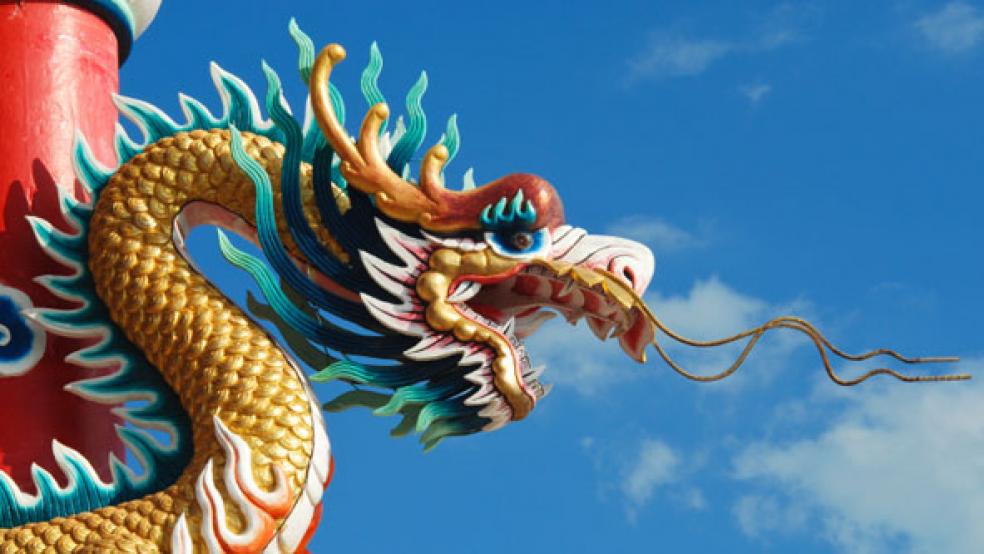Is it time we got tough on China? The European Union has decided to broaden its crackdown on Beijing’s unfair trade policies, for the first time challenging China’s system of state subsidies of export industries. The EU charges that China’s exports of glossy paper are underwritten by government-subsidized land or credit – backstops that permeate China’s industrial model but are illegal under most trade agreements. Previous complaints have targeted dumping. The move may signal a more aggressive push-back against China’s export policies.
With U.S. jobs still scarce, why doesn’t the U.S. go to the mat over subsidies, or over the undervalued yuan, or challenge rampant intellectual property theft that has stolen billions from U.S. companies?
Because our big companies don’t want us to. Our large corporations are afraid of losing access to the fastest growing consumer market in the world, or undermining their supply chains. Corporate America continues to be China’s greatest advocate, even as it is also, at times, Beijing’s greatest victim.
The Committee of 100 – a group dedicated to “encouraging constructive relations between the peoples of the United States and Greater China” – held its 20th annual conference last week in New York. Among the speakers was Coach CEO Lew Frankfort, who reassured the audience that China has “worked very hard on intellectual property rights; they have become an adamant supporter of our efforts to combat counterfeiting.” Mr. Frankfort said Coach has hired private local investigators in China to spot factories making fakes. They then alert local officials, who are willing to shut down factories immediately. “They do not reopen” said Mr. Frankfort, who added, “It is a pleasure to work in China.”
Tell that to Yahoo. In one of the more outrageous business stories of the year, it was reported that Alibaba, a Chinese company in which Yahoo owns a 40 percent interest, transferred one of its most profitable units to another company, controlled by Alibaba’s CEO Jack Ma, without Yahoo’s knowledge. This is basically theft, and a situation that, as the Wall Street Journal reports, “turns a spotlight on the increasingly difficult challenges facing Western companies trying to do business in China.”
Actually, the Chinese have always been notorious for this kind of double-dealing. Ask any CEO who has opened a manufacturing plant in China. Almost invariably, the “local partner” builds a duplicate production facility down the road, typically selling the same product at a lower price. This kind of shenanigans has prompted Virginia Kamsky, a long-time advisor to U.S. companies doing business in China, to tell CEOs not to “leave their common sense at the border.”
Many companies leave more than their common sense. They leave their moral outrage as well, as a deposit against future sales. Coach is thriving in China. It now has 60 stores there, revenues are up 75 percent, and the future is bright. Private consumption accounts for just 37 percent of China’s GDP, compared to 70 percent in the U.S. Authorities in Beijing have made it clear that personal spending will rise, as they attempt to foster a more sustainable platform for future growth. What could be more encouraging for sought-after U.S. brands? Who cares if vendors in the silk market sell knock-off Coach products? (And they do.)
Corporations should care, because counterfeiting costs the G-20 nations an estimated $135 billion in sales. Unhappily, as was pointed out at this year’s annual meeting on fakery hosted by Harper’s Bazaar, miscreants get a huge boost via the Internet. Sales of fake goods, estimated to total over $650 billion annually, and to cost the U.S. some 750,000 jobs, have never been easier to accomplish or harder to police.
Though counterfeiting extends across the globe, the epicenter remains in China. The Customs and Border Protection division reports that in 2009 some 79 percent of the counterfeit goods seized at U.S. points of entry came from China. Our government, with the encouragement of business groups such as the Chamber of Commerce, is targeting rogue websites selling fakes (and receive a purported 53 billion visits a year), rather than attack the source. It’s a practical approach, and one less likely to trigger a backlash from China. Still, for those smaller companies that don’t get a whack at the China piñata, it’s not entirely fair.
Coach’s CEO noted that rising labor costs in China will push the company to move much of its production elsewhere in coming years. It is not alone. As manufacturers search out cheap labor, they will ignite prosperity in Vietnam, India and other countries already competing for foreign investment. Those countries, too, will become growing markets for U.S. goods. None, however, will provide the opportunities offered by China, simply by dint of its huge population. For the time being, Beijing is in the driver’s seat – not because the Chinese own trillions in U.S. debt, but because corporate America does not choose to rock the boat.
“Let's not forget—despite a serious trade imbalance between our countries—China is one of the fastest-growing markets for U.S. products and services, the Chamber’s Tom Donohue recently pointed out. “Our exports to China have soared 150 percent since 2001.” And therein lies the problem.
Related Links:
Coach to Shift Manufacturing from China (Financial Times)
China Navigates Tough Road to Tighter Policy (MarketWatch)
Lights Out on China Trade? (CNBC.com)





